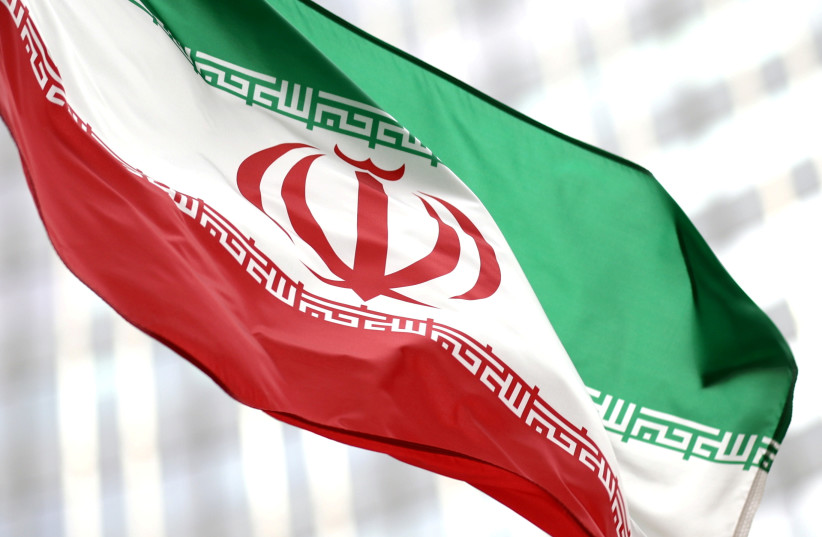If one ever existed, the mask is off the face of the Iranian regime. After eight years of President Hassan Rouhani, labeled by some as a “reformer,” the June election clarified Iran’s true colors. Ebrahim Raisi, a close ally of Ayatollah Ali Khamenei and a confirmed mass murderer, is now president. Raisi is unlikely to advance the lives or freedoms of the Iranian people who are tired of an authoritarian regime that does not promote their interests. This is a bad development but let’s try to make the best of it: there’s no better time for the United States and our Middle Eastern allies to further the ties strengthened by the Abraham Accords. And if real negotiations are to take place with Iran, Arabs and Israelis should have a seat at the table.
The Abraham Accords were remarkable, not just because of the agreements themselves but also because of the circumstances that made them possible. For years, the Iranian regime’s aggression, nuclear program, and support for terrorism in the region has plagued Arab states and Israel alike. Iran is a significant reason that the division lines of the Middle East changed. Instead of Arab vs Israel or Muslim vs Jew, the real issue has become stability vs extremism. The Abraham Accords capitalized on this shift by formalizing a new set of allies and a framework for regional cooperation. With the signing of the accords, America’s foreign policy became simultaneously highly pro-Israel and highly pro-Arab – something that experts would have called an oxymoron just a few years ago. Ironic as it may be, we partly have Iran to thank for this development.
Every good story needs a bad guy and Iran serves its purpose quite well. The regime makes scary proclamations, supports terrorism beyond their borders, appoints criminals as leaders and represses their own people. At the same time, they have inspired a fragmented region to come together, unified with strategic purpose to counter the instability terrorism creates. When the United States killed Qasem Soleimani – Quds Force commander and the second most powerful person in Iran – the Iranian reaction was telling. While there was a predictable flurry of inflammatory statements, the regime killed no Americans when they fired a volley of missiles at our base in Iraq.
Why such a limited action? It was difficult for strong actions to follow strong words when the Iranians knew the consequences. If those missiles had killed our service members, they knew that the American response would be swift and even more severe. They could not possibly have matched our strength and resolve. This should be a reminder of the importance of maintaining America’s strength in the region.
Soleimani’s death paved the way for the Abraham Accords. It demonstrated to the region that the United States meant business and that we would not stop in our relentless fight against global terrorism. It emboldened countries like UAE, Bahrain, Morocco and Sudan to join Egypt and Jordan in bringing into the open what was already quietly known for years: that Israel and the modern Arab world have far more in common than what divides them, and far more to gain by working together against extremism to advance economic resilience and regional security.

It is important to be thoughtful about our next steps with Iran. How much effort should we spend negotiating with this regime for a temporary moderation of its nuclear threats, and does it come at the expense of a strengthened regional alliance? We should heed the wisdom of our Arab and Israeli allies that have strong misgivings with such an approach.
Our current tack has already forced Saudi Arabia into talks with Iran that may imperil the prospect of future peace with Israel. Iraq too has shown troubling deference to Iran in recent months and recently arrested organizers of a conference calling for peace with Israel. We should highlight that cooperation with Israel is the best solution to the threat of a nuclear Iran, not Iran’s preferred outcome: deference and vassalage. We can expand the Abraham Accords precisely because of the position that Iran occupies, and we should not lose the opportunity.
Finally, we should not forget that success in this region is dependent on many factors, and strength is one of them. Our regional allies need to know that we are behind them, and our enemies need to know that we do not fear acting when necessary.
The writer served on the negotiating team for the Abraham Accords and was unanimously confirmed as the first CEO of the US International Development Finance Corporation (DFC). He is the recipient of the Department of Defense’s highest civilian medal for his work and is a board member at the Atlantic Council and the US Holocaust Memorial Museum. He is currently the CEO of the health care investment firm Rubicon Founders.
